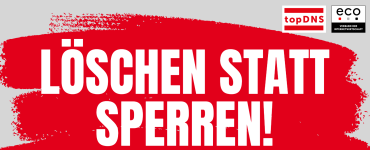Symbolically charged debate on IANA reform
Berlin, 01.10.2014 – Who will take over the supervision of the Internet Assigned Numbers Authority (IANA) from September 2015? This question is dominating the current discussion on Internet Governance and was the basis of a lively discussion in the eco Dialog on the Future.










Around 30 participants from politics, the media and industry took the opportunity of informing themselves about the current status of the new alignment of Internet administration, in the meeting at the eco Capital Office in Berlin. The US Government announced last year their intention to relinquish their role as supervisor of the so-called “IANA function” of the Internet Corporation for Assigned Names and Numbers (ICANN) in September 2015. IANA administers the root zone of the Domain Name System (DNS) and operates thirteen root servers which form the starting point for all name resolution in the Internet.
IANA function – a strong symbolic importance
A successor has not yet been found and is the object of international negotiations. “Despite this, there is no need to fear a network-policy vacuum in the aftermath of the USA’s withdrawal,” explained the Internet Governance expert Prof. Wolfgang Kleinwächter from the University of Aarhus. Kleinwächter, who is also a Member of the Board of Directors at ICANN, pointed out that IANA does not really control the Internet, but rather has a notarial function within Domain registration. However, IANA has a strong symbolic importance in the context of international Internet Governance, which he suggested could end up being used as a political football.
Fundamental reform of ICANN not necessary
Hans Peter Dittler, President of the German Department of the Internet Society (ISOC), asserted that there are no grounds for a fundamental re-positioning of ICANN. “The function IANA performs currently is limited to a simple database function,” the consultant continued. The transfer of the IANA functions, he maintained, should not be bundled with calls for a comprehensive reform of ICANN.
“It should not be forgotten that the USA has never stood out as a disruptive factor,” Thomas Rickert explained to the participants. “Even the – in the US – highly controversial Top Level Domain .xxx was registered in the root zone unproblematically by the US Government, in the exercising of their role as IANA supervisor,” the Director of eco Names & Numbers continued.
Reform process offers chance for multi-stakeholder model
There was general consensus among the participants that the current reform process offers a great chance for the establishment of a strong multi-stakeholder model in which the representatives of governments, the civil society, industry and associations can have an equal say on questions of Internet Governance. Wolf-Ulrich Knoben, Member of the IANA Transition Stewardship Co-ordination Group at ICANN, gave an overview of how the suggestions for the possible design are collected and aggregated.
“A certain level of supervision of ICANN is of course necessary,” Kleinwächter added, “but it cannot be an intergovernmental committee that replaces the US Government.” Otherwise, Kleinwächter believes, the allocation of every new Top Level Domain will become a political issue. The trick would be rather to avoid the participation of governments and to find a stable control mechanism.
eco has also been campaigning for years now for a strengthening of the multi-stakeholder dialog to ensure a secure and free Internet, and is closely following and participating in the discussion process. Ultimately, according to eco Board Member Oliver Süme, the ICANN model is the only example in the world of the self-administration of a globally valuable resource, and it has been that for close to 20 years.
Hubert Schöttner, from the German Federal Ministry for the Economy and as the German representative in the governmental committee GAC at ICANN, confirmed that the German Federal Government also supports the multi-stakeholder model of Internet Governance. There is so far no agreed proposal from the German Government on the re-organization of ICANN, but he maintains that there must be a discussion on what role national governments should play in ICANN in the future. He continued that it would also need to be ensured that ICANN would not be dominated by any one interest group. The German Government would want to continue to be involved and would like to take on a consultative function.
The deadline for proposals on the re-organization of IANA is 15 January 2015. eco will also involve itself in this consultation process, representing the collective position of the German Internet industry and its international members. The next ICANN meeting will take place on 12-16 October in Los Angeles. eco will report on the further process of the negotiation and the results.
Further information
- To the Flickr-Album
- To the german Agenda



